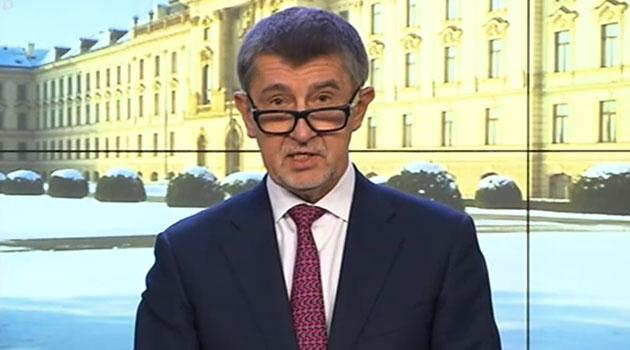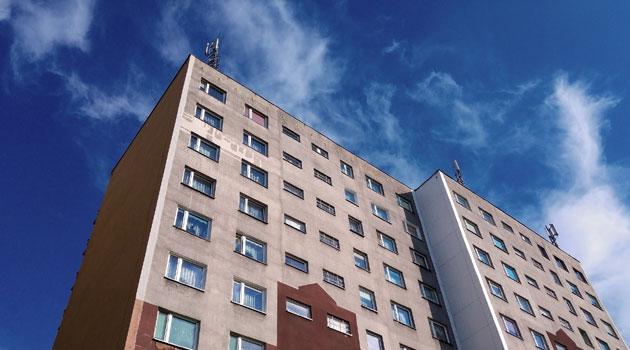71 Czech towns plan to ban housing benefits and make life harder for the poorest of the poor

Zones with an alleged “increased incidence of undesirable phenomena” in which new applicants will not be able to receive housing benefits have been announced or are planned for 71 cities and municipalities throughout the Czech Republic. The Institute for Social Inclusion (IPSI) announced the news on 12 April.
According to the Institute, last year’s changes to the system of welfare benefits and the new restrictions on their disbursal are deteriorating the situations of the most impoverished people in the country. Last June those living in residential hotels also were impacted by a reduction to their housing benefits.
Those benefits are no longer calculated on the basis of the entire normative cost of such housing, but on the basis of just 80 % of those costs. If those who are in need of the benefit are unable to demonstrate they have ties to the community, such as employment or children in school there, they will no longer be eligible for the housing benefit.
New applicants will not be awarded housing benefits in areas with “undesirable phenomena”. Such zones can be announced by local councils in places where public order is disturbed, where children are endangered, or where people are publicly under the influence of alcohol and drugs.
As of this August, persons in material distress who are in need of a living allowance will be required to perform at least 20 hours of public service work to be eligible for a benefit equivalent to that of the average standard of living, and if they do not perform such work, their benefit will be reduced to subsistence level. Those who draw on such a living allowance for more than half a year will receive that financial aid in vouchers only, not in money, as of this December.
“All of the amendments to the law on aid to those in material distress, without exception, will deteriorate the situation of socially excluded people, and along with that they will deteriorate the prospects of social reconciliation and a solution to the problem of these socially excluded localities. The poor will fall under even greater pressure – without benefits they will be dependent on illegal income generation and on housing in residential hotels where drug dealers and loan sharks swarm,” IPSI reports.
The Institute believes politicians are doing their best to score points with voters by adopting such changes through “irresponsible populism”. There are three kinds of welfare benefits paid in the Czech Republic to persons in material distress: Living allowances, housing benefits, and extraordinary immediate aid.
Last year a total of CZK 7.36 billion [EUR 300 million] was disbursed for such benefits. In 2016 such expenditures were CZK 1.9 billion [EUR 75 million] higher. Last December a total of 144 700 such benefits were disbursed compared to 187 600 in 2016.
Experts at the Institute point out that many people in the Czech Republic cannot pay regularly for their housing without state aid. Outgoing Czech PM Andrej Babiš (ANO) and Czech Labor Minister Jaroslava Němcová (ANO) have said the Labor Ministry is planning to analyze and change the welfare system.
Babiš has reiterated several times that his cabinet wants to prevent welfare abuse. In the Czech Republic there is not yet an official social housing system set up.
The previous Government coalition of ANO, the Christian Democrats and the Czech Social Democrats (ČSSD) did not manage to adopt a law that would have established such a system. The drafting of that legislation has become protracted.
Different ideas about such a system are held not just by local councils and the opposition, but also by the coalition parties themselves. The perspective of ANO and ČSSD mainly differs over who should be eligible for social housing and who should provide it.
Currently the Czech Regional Development Ministry is working on the law. According to that ministry’s plan, social apartment units could exist for people “with the competence to live independently”, while those without such competence would live in “social homes”.
The state would contribute funding to those newly-instituted, municipally-managed residential hotels. According to the Institute, there is a danger that the situations of people in need will deteriorate further through that approach.
“Along with these future cuts to welfare for the poor, the new Government, which does not have a vote of confidence from Parliament, is planning social housing just for those who did not end up homeless as a result of their ‘own culpability’,” IPSI said. The Institute has existed for two years and is comprised of former staffers of the Czech Government Agency for Social Inclusion who left the Agency to protest the sudden dismissal of its director and other changes.
